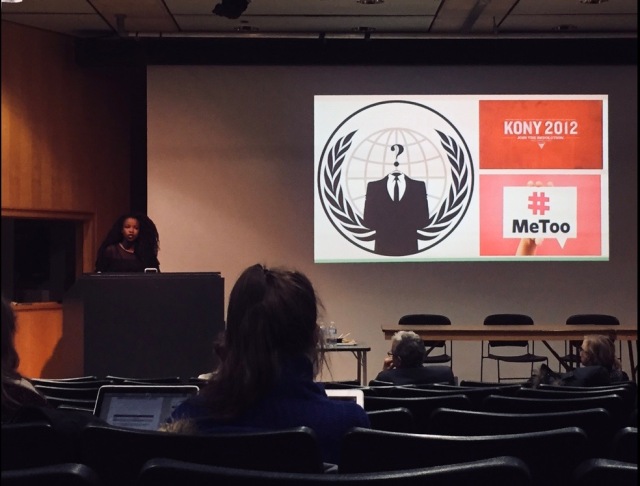During the ARTivism Lab Speaker Series, there were four activists, each holding intersectional perspectives, while targeting a specific cause they’re passionate about. From Audrey Hudson discussing hip hop’s place in creating dialogue for under privileged black youth, R.M Kennedy striking for academic freedom, Sandra Jeppesen for her unapologetic intersectional feminism, and Ryerson’s own president Susanne Nyaga talking about the ingrained anti blackness on campus.

All of the activist panelists actively relate to the main cause they’re dealing with, yet they provide inclusive environments and push for intersectionality in a way that I see many activists (devoted to more of a singular issue), having a hard time overcoming. Sandra Jeppesen put it best when she pointed out that as a white woman, she had to step back and let indigenous women tell their own stories by offering tools that she had the privilege to access.
It’s important to find a balance in standing with a community, standing for a community, contributing to the conversation as well as realizing that a perspective you empathize with isn’t one you exactly know. It’s about realizing your voice and what everyone has to offer; realizing when it’s your turn to speak/contribute. These artists are creating change that goes further than what my generation and I commonly see. Susanne Nyaga mentioned this when talking about the shallowness of social media activism and using that element as a first step but not the end all. These artists differ, making the conscious effort to occupy space, creating visibility and helping others find their voice and realize their own ability. By being vocal, they change relations of power and privilege in society, each in their own ways.

Neoliberalism was a topic that was discussed in relation to the kinds of topics that were discussed by the multiple speakers. It made me realize that neoliberalism ideology is ingrained everywhere and as an activist collective, it’s something that we are all trying to overcome. Earlier in the course, we discussed the neoliberal university and seeing how it effects all kinds of people and communities is really disheartening but it’s important to realize how in order to create the deserved change. I really enjoyed what Susanne Nyaga said about holding institutions accountable in order to carve your own space in a place that was not made for you. I think that speaks particularly towards the indigenous and the black community, while being intensified for women within those specific communities.
Personally, as an activist, I feel like activist issues are driving forces for the content I desire creating but I’ve always found it a little hard to self identify as an artist, a filmmaker, and an activist. Now, I think it’s powerful and important to do that in order to see yourself in a way that places you in a position of realizing the power you have to reinforce change, as well as giving you the confidence to do that. I think I’m able to now self identify and realize that the first step is realizing your calling, and this is something that’s always been an integral part of who I am. Speaking out is important, creating content that scares you is important and hearing from activists who do that is inspiring.